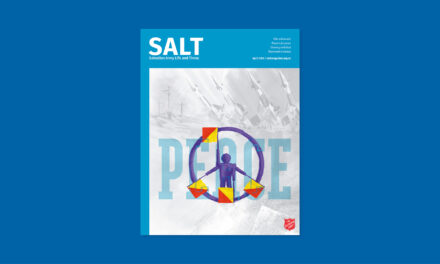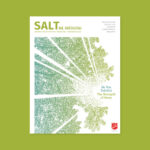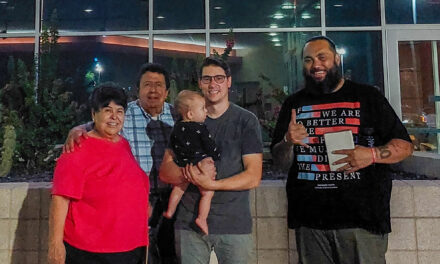
Peace, No Matter What

On the evening Jesus was to be arrested, he gathered his closest friends together. As they shared a meal, Jesus revealed that he was preparing to leave them, and he made them a promise. He explained that although he would soon depart this world, they would never be alone, as he would send his advocate, the Holy Spirit, to be with them and comfort them with his everlasting peace. In part one of a two-part series, Kelly Cooper explores this bold promise made over 2000 years ago and asks the question: Where in our world can we find this peace that Jesus spoke of?
Few people would argue with the observation that we’re living in uncertain times. If you’ve been tempted to avoid the news lately, you are certainly not alone. Our daily headlines are filled with stories of war, conflict, terrorism, crime, the rising cost of living, increasing inequalities, racial tensions, grim economic forecasts and the effects of climate change. Add to this ongoing uncertainty the very real challenges of being human—such as grief, disappointment, regret and living with chronic illness—and it is perhaps not surprising that for many of us, peace is hard to come by.
The term ‘peace’ is defined by the Cambridge Dictionary as ‘the absence of war, conflict and violence’ or ‘a state of being free from worries and problems’. In our world, to experience peace we typically require a change of circumstances. We live in peace when conflict is negotiated and when wars end. We encounter moments of peace when good health returns, when our finances look a little healthier, or when our burdens lighten. However, as many of us have discovered, a sense of peace rooted in getting what we want or things going our way tends to quickly evaporate when our situation inevitably changes. When our peace hinges on our circumstances, we shouldn’t anticipate experiencing it frequently.
Unconditional peace
As Jesus sat with his disciples, sharing what would be his last supper, he promised those who follow him a different type of peace. A peace without conditions. A peace that transcends circumstances. A peace that is everlasting. ‘Peace I leave with you; my peace I give you. I do not give as the world gives. Do not let your hearts be troubled and do not be afraid’ (John 14:27). Jesus assured his disciples that he would leave them with his peace, emphasising its distinction from the peace offered by the world. He comforted them, urging them not to worry or be troubled.
The peace that Jesus offers us is not in any way limited to or dependent upon our circumstances, rather it is grounded in God’s presence through his Holy Spirit within us. While the circumstances of our lives will continue to change, the peace of God will remain. We are not guaranteed a life without pain or trouble, but God does tell us that he will always be with us. When we seek the peace the world gives us, we will always ultimately feel disappointed and separated from God. This type of peace is at best temporary and at worst entirely elusive. The world’s peace will come and go, ebb and flow, based on the situations we find ourselves in.
Not a single one of us is able to attain the peace Jesus spoke of alone. We are, however, all in a position to choose it. Jesus’ promise was also an invitation. We are all invited to receive his gift. When we choose to draw near to God, we experience his constant companionship through the Holy Spirit. It’s in his company, or his ‘withness’, that we receive his gift of peace, regardless of our circumstances. Together, with his disciples, Jesus invites us to experience his ‘no matter what’ kind of peace. Jesus didn’t promise his peace in the absence of conflict; rather he promised his peace always.
Peace beyond understanding
Followers of Christ frequently testify to encountering God’s indescribable peace and feeling intimately connected to their Creator during the most agonising seasons of their lives. Horatio G Spafford may not be a name you have heard of, but you are likely familiar with the well-loved hymn he penned in 1873, ‘It Is Well with My Soul’. Horatio wrote the lyrics to this hymn after experiencing profound tragedy with the death of his son to sickness, the loss of most of his real estate investments in the Great Chicago Fire and then the devastating news from his wife that all four of his daughters had perished at sea. As Spafford travelled to meet his grieving wife, he was inspired to write these words:
When peace like a river, attendeth my way,
When sorrows like sea billows roll;
Whatever my lot, Thou hast taught me to know
It is well, it is well, with my soul (SASB 741).
Given the magnitude of his loss, it is natural to question Horatio’s choice of words declaring all was well with his soul. How was this man able to make such a claim in the depths of such personal pain?
If the peace we experience in our lives is circumstantial, we will know all too well how elusive it can be. Let’s consider allowing God to take us on a journey to redefine what his peace means. It is the deep work of our souls and our minds to begin to understand this ‘no matter what’ type of peace that Jesus promised us. Our world offers nothing that comes close.









